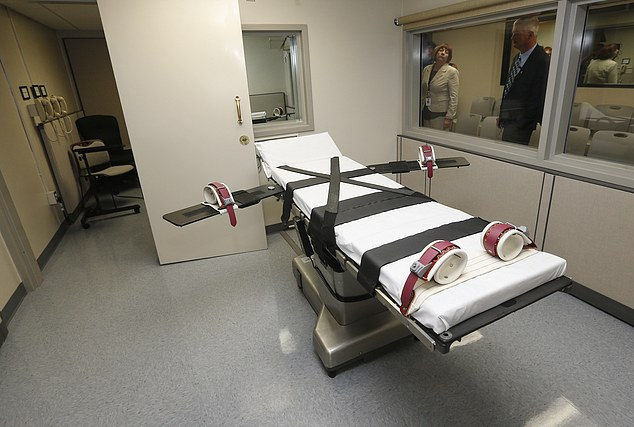Alabama may soon achieve a significant legal milestone by becoming the first state to introduce an innovative and untested method of execution. The state's Attorney General, Steve Marshall, recently submitted a formal request to the Alabama Supreme Court, urging it to set a date for the execution of Kenneth Eugene Smith. Smith's conviction and subsequent death sentence stem from his involvement in a murder-for-hire plot targeting a preacher's wife in the 1980s.

Expressing his frustration over the lengthy delay in carrying out Smith's death penalty, Marshall emphasized the gravity of the crime and its impact on the victim's family. He noted that Smith's conviction for the brutal murder of Elizabeth Sennett has remained in limbo for nearly 35 years. The court filing sheds light on Alabama's intention to employ an untested execution method known as nitrogen hypoxia to administer Smith's punishment.
What is Nitrogen Hypoxia?
Nitrogen hypoxia involves exposing the condemned individual to pure nitrogen gas, a substance that constitutes a large proportion of the air we breathe. While nitrogen itself is harmless when mixed with oxygen, this method introduces a unique twist: the inmate would inhale pure nitrogen, resulting in a swift loss of consciousness followed by death. Experts have speculated that the effectiveness of this method could surpass that of existing execution methods.
Alabama authorized nitrogen hypoxia in 2018 amid a shortage of drugs used to carry out lethal injections, but the state has not attempted to use it until now to carry out a death sentence. Oklahoma and Mississippi have also authorized nitrogen hypoxia but have not used it.
According to Charles Blanke, a respected medical expert from Oregon Health & Science University School of Medicine, a person placed in an environment saturated with pure nitrogen would quickly lose consciousness, potentially within a matter of seconds or a few breaths. This unconscious state would inevitably lead to the inmate's demise. Advocates of this approach argue that its painlessness sets it apart, though critics view it as an untested and ethically contentious form of experimentation on human beings.
The Equal Justice Initiative, an organization dedicated to upholding fair trial principles, has voiced concerns about the use of nitrogen hypoxia, emphasizing the need for caution when employing unproven execution methods. Despite being authorized in Alabama since 2018 due to a scarcity of conventional lethal injection drugs, the state has refrained from implementing the nitrogen hypoxia method thus far. Notably, Oklahoma and Mississippi have also greenlit this approach but have yet to put it into practice.
One notable legal consideration in this case is the burden of proof. Corinna Barrett Lain, a law professor at Richmond University, highlights that it likely falls on the condemned inmate to demonstrate that a nitrogen-based execution would be torturous. This stance differs from the typical requirement for the state to validate the humaneness of its execution methods.
While the specifics of Alabama's nitrogen hypoxia execution protocol remain undisclosed, Kenneth Eugene Smith's case has gained attention as an emblematic instance of capital punishment innovation. As Alabama aims to finalize the nitrogen hypoxia method, Smith's lengthy legal journey serves as a focal point in the ongoing dialogue surrounding execution practices and their ethical implications.








